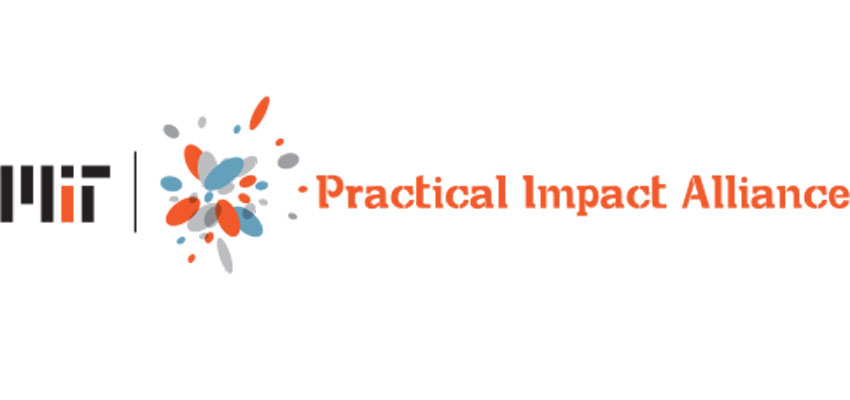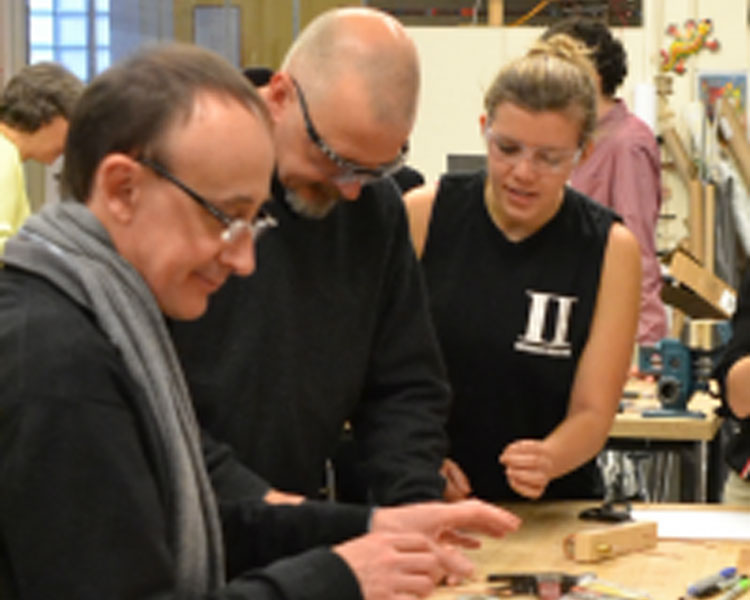
Practical Impact Alliance Working Groups: PIA's core learning platform
The Practical Impact Alliance’s primary mechanism for engagement are its Working Groups. Working groups provide the core learning platform for PIA, and engage members throughout the year - bridging the gaps between in-person events such as the MIT Scaling Development Ventures Conference in the spring and the annual Co-Design Summit in the fall. The working groups allow for deep dives into particular subject areas, giving members the opportunity to learn from each other, while D-Lab works to harvest the knowledge and learning of the groups to create practical tools - such as sets of best practices, or decision making frameworks - that can benefit the broader community.
Introducing the Working Groups
For the 2015 pilot year, PIA members are engaging in four working groups covering a wide range of subject matter. This year’s working groups are:
- Leveraging Mobile Technology for Behavior Change
- Food Loss and Food Waste
- Distribution Models at the Base of the Pyramid
- Fostering Local Innovation and Co-Creation
PIA members are the drivers of the working group selection process, ensuring that members are actively engaged in learning that is relevant to their work and their context. At the beginning of this year, members pitched a total of 20 topics and subject areas for consideration. D-Lab then facilitated a voting and matchmaking process, narrowing the field down to four while making sure each member would be engaging in at least one group.
How PIA Working Groups . . . work
Like most aspects of the Practical Impact Alliance, management of the working groups is collaborative. For each group, a D-Lab facilitator is paired with a “lead” member to share responsibility for curating content and animating discussion around the topic area. The working groups convene monthly via videoconference. Typically, these meetings are focused around a case presentation tied to the learning objectives that each group established at the beginning of the year, which the members and call participants then discuss or workshop together. Often, these cases are focused around a particular challenge or question presented by a particular member, giving that person the opportunity to access the collective knowledge and experience of the group. Other times, the facilitators source content from outside the group, allowing them to fill in gaps in the group’s knowledge or to build upon themes previously discussed.
Some working groups - such as this year’s Mobile Technology and Behavior Change, are focused primarily on learning, as most of the participants are curious about the potential of mobile technology but do not yet have an abundance of experience leveraging phones to create behavior change. In this group, sessions have covered a broad range.
For example, one session featured Jonathan Jackson, the CEO of Dimagi. Dimagi is the company behind CommCare, a customizable and open-source platform designed to support front-line health workers in developing countries. Jonathan presented on the CommCare product and shared examples of how Dimagi has partnered with various organizations, illustrating several ways in which the platform or similar technologies could be leveraged. Another session in the same working group featured Ariella Park, an associate at MIT’s J-PAL. Ariella presented findings from a variety of randomized control trials focused on evaluating the effectiveness of mobile interventions in creating behavior change in different contexts.
Other groups intentionally combine learning and action in their objectives for the year. Participants in the “Fostering Local Innovation and Co-Creation” group were interested in the benefits of and approaches to including end-users in the design of their products and services. D-Lab’s Amy Smith and Kofi Taha kicked off group activity by presenting on the Creative Capacity Building methodology and the International Development Design Summits. Another presentation from World Vision focused on their approach to ensuring sustainable and effective engagement with the communities and stakeholders they work with. Alongside the learning activity, group members are exploring the preconditions and mindset necessary for successful co-creation, and are designing a set of exercises that will be piloted during the first PIA Co-Design Summit this fall.
Shared learning and productive partnerships
As the working groups enter their home stretch for the 2015 pilot, there has already been proven value to the members. The working group meetings build on the collaboration opportunities that already exist with the PIA community by broadening members’ understanding of the ecosystem around each group theme. Guest presenters and participants enrich the opportunities for shared learning and productive partnerships. By animating regular discussion, facilitators are able to monitor how members’ interests in the topic evolve, and can adapt the content to meet new needs. Now, as facilitators begin work synthesizing the activity from the year in order develop practical working tools, we can look forward to seeing how the outputs of this learning community can benefit practitioners and organizations both inside and outside of PIA.
Email Elisha Clark, D-Lab Scale-Ups Partnership Coordinator.


